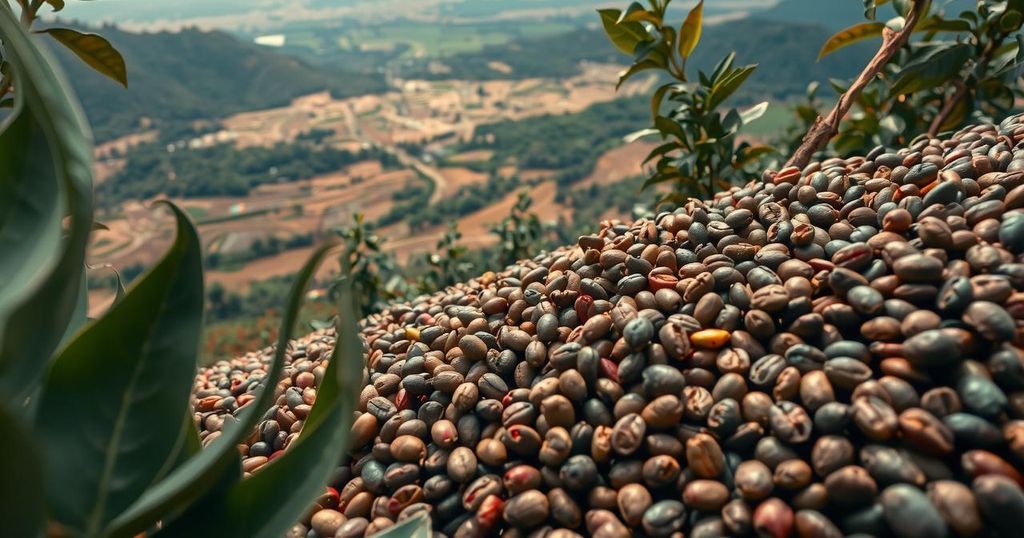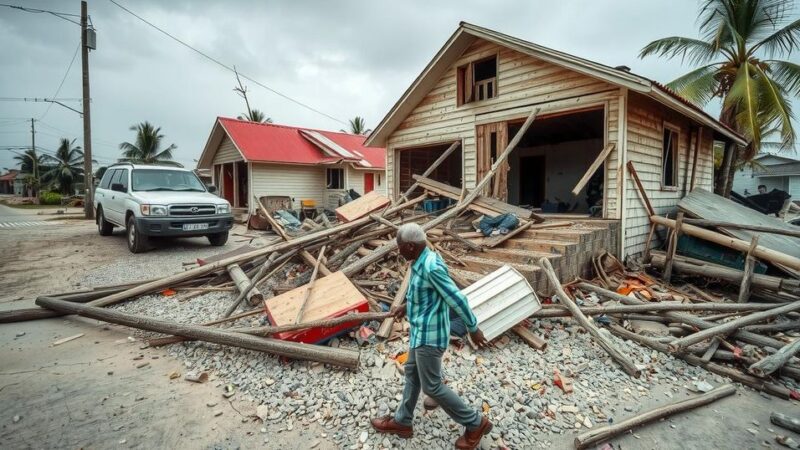Droughts in Brazil and Vietnam, exacerbated by climate change, have led to a record surge in global coffee prices. These extreme weather conditions threaten the sustainability of coffee production, potentially reducing suitable growing regions drastically by 2050. As a response, companies are exploring alternative coffee sources and adapting their strategies to mitigate the impact of climate change on the coffee market.
The recent surge in coffee prices, reaching a peak not seen in 47 years, has alarmed consumers as climate change exacerbates challenges faced by coffee growers. Prolonged droughts in Brazil and Vietnam, the world’s foremost coffee producers, exacerbated by the El Niño phenomenon and global warming, have rocked the coffee industry. With projections indicating that suitable coffee cultivation areas could shrink by 50% by 2050, there is a pressing need for adaptation strategies.
In Brazil, the National Center for Monitoring and Early Warning of Natural Disasters reported unprecedented drought levels impacting nearly 60% of the region. This drought can be attributed to both climate change and deforestation, which has altered rainfall patterns. The drought coincides with wildfires, particularly those resulting from slash-and-burn farming practices, leading to devastating crop losses. Meanwhile, Vietnam continues to grapple with the aftereffects of drought and Typhoon Yagi, complicating recovery efforts.
Despite recent rainfalls that have prompted hopes of recovery for Brazilian coffee crops, many small-scale farmers face an uncertain future. Climate change remains a crucial concern as coffee arabica, the most popular coffee species, is particularly sensitive to climate fluctuations. A rise in temperatures could displace coffee-growing regions out of their optimal climatic conditions.
In the market, arabica coffee bean prices have soared nearly 70% this year, prompting companies like Nestle to adjust their pricing strategies and product sizes to cope with rising costs. Major coffee enterprises, including Starbucks, have begun seeking alternative sourcing strategies by investing in coffee farms outside of South America. Such adaptations are critical as the industry anticipates a continued downturn due to climate impacts. Companies are even exploring climate-resilient coffee substitutes as part of the industry’s long-term strategy.
The article discusses the impact of climate change on global coffee prices, particularly highlighting the repercussions of severe droughts in Brazil and Vietnam—two of the largest coffee producers. It examines the broader implications of these climatic changes on agricultural viability, economic sustainability for farmers, and eventual consequences for coffee consumers. With projections that favorable coffee-growing regions may drastically decrease by mid-century, the report underscores the urgent need for adaptation within the coffee industry.
In summary, the coffee industry is currently facing unprecedented challenges driven by climate change, leading to skyrocketing prices and threats to agricultural sustainability. As drought conditions persist in major producing countries, both farmers and consumers are likely to feel the financial strain. The industry’s responses, which include diversifying sources and exploring alternative coffee products, will be crucial in overcoming the looming crisis and ensuring the future viability of coffee production.
Original Source: insideclimatenews.org







